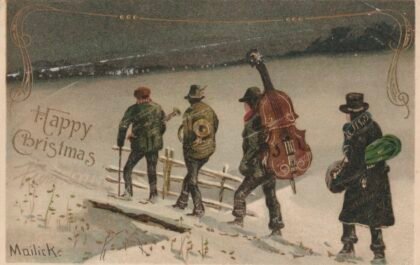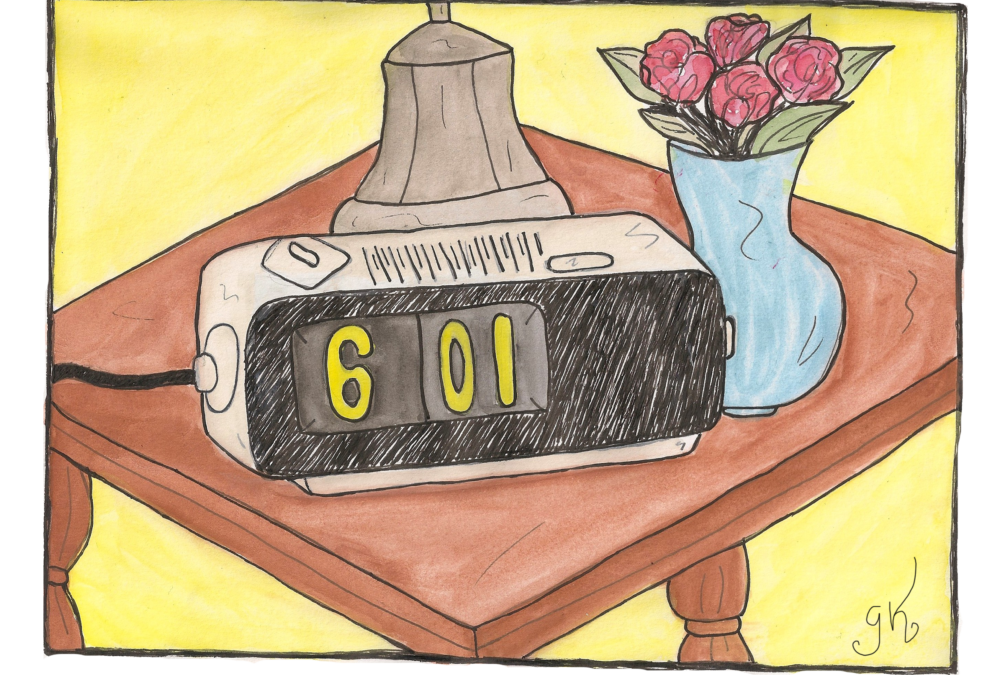I’ve found the key to contentment. That is to say, partial bliss. I know, I know. I sound pretentious, superficial, and maybe even naïve. Bear with me.
The Bible’s Gospel of John teaches life-lessons that can be valuable to any, regardless of whether they believe in the existence of God or Jesus’s role therein. Buddhist scripture offers the kind of wisdom that slaps you in the face but then explains how to soothe your stinging cheek.
Harold Ramis’ 1993 rom-com with a twist Groundhog Day shares a story that ends up being profoundly reflective on life’s potential and our freedom of choice within it. Yup, the meaning of life can be found in just three sources. Take that, nihilism.
Groundhog Day stars Bill Murray, following the experience of a bitter weatherman, Phil Connors. He’s snarky, inconsiderate, and starkly pessimistic. When a blizzard strands him in the town of Puxatony, PA while covering Groundhog Day festivities, his life takes a “Twilight Zone” turn. Suddenly, every day is February 2nd; every day is doomed to repeat itself. So it seems.
Phil is the only character aware of this conundrum and, as the film goes on, he grows into a better and happier person, learning to make the most of what’s in front of him. He finds there’s a lot. My takeaway? We’re Phil Connors. We can all find blessing in what might initially be considered curse. Like Phil, we can all make the most of it.
In the Bible (John 7:37-38), Jesus says “If anyone is thirsty, he should come to Me and drink! The one who believes in Me, as the scripture has said, will have streams of living water flow from deep within him.” I don’t believe He’s talking about those who think He’s the Messiah. Instead, He references anyone who believes in what He examples; Anyone who acts like Jesus (in the ways of love) can find an unmatchable joy for life.
As such, salvation can be found not in Jesus’ death on the cross, but rather in the example He left us forever with, testaments to human possibility and purpose that will lead to true liberation only if we accept our responsibility in enacting them. Afterlife or no, I don’t think He put emphasis on what may happen when we die but rather on what we can do while we are alive.
But we can be too literal. God’s will is to love one another (see John 15:17). Accepting Jesus is merely to try our best to act with forgiveness, empathy, and compassion for all; To love.
“I have spoken these things to you so that My joy may be in you and your joy may be complete (John 15:11),” Jesus says. Love paves the path to complete joy and purpose. To get there, we have to enable mindfulness. This is where Buddhism comes in.
The Buddha says life is impermanent and we suffer because we yearn for transient things.
We think, “Once I get (insert goal here) then I’ll be satisfied.” He says this hinders our experiences of the present because we rely on tomorrow, rather than today. We place our happiness in an ambiguous set of hands far removed from ourselves or our own control.
The Buddha’s cure is to reject our urge to cling. To do this, we must master a path of righteousness, which supposedly leads to utter liberation. Scholars often separate the Buddha’s eightfold path into two categories: acting with integrity and mindfulness; He has two commands:
1. Live righteously. 2. Respond, don’t react.
I’ve found that even the pursuit of these (trying and failing and trying again in my fallible human way) brings just enough enlightenment for an improved life experience. Compassion, gratitude, and hope even in the cloudy moments (with faith that clear skies will come again) are the key. Seeking such, even if never mastered, is my prescription for something as close to bliss as I can imagine.
Back to the movie. By the end, Phil realizes something hugely uplifting: The day may repeat itself but he doesn’t have to. Neither do we. The Buddha’s wisdom, Jesus’s teachings, and
Phil’s story acts as a reminder that time is precious and life is what you make it. In a time of seeming repetition, this rings particularly true. If time feels like it’s standing still, at least we don’t have to.
There’s a happy medium to be found between letting be and taking heed. In a world of unpredictable tomorrows (reliable only in their transience), we can escape the purgatory of repetition by learning to cherish what is now and recognize where we can make differences. We ask, “What if there is no tomorrow?” when maybe we should ask, “What can be today?”
Times change and experiences differ but this revelation has little to do with circumstance and everything to do with perspective; You are what you eat and you feel what you feed. Winter or spring, tomorrow or today, it all starts with you. What will you do with today?
Gwendolyn Kudra is a self-proclaimed chronicler of several sorts who particularly relishes life’s seeming simplicities. She likes to believe in aliens, Nessie, and that Pat Garrett didn’t actually kill Billy the Kid, among other eyebrow-raising things. If she were a dog she’d be a collie (but she’d actually be a cat). She thinks in run-on-sentences and a lot of parentheses. More of these kinds of musings, as well as her art and poetry, can be found at www.gwendolynkbillings.com.





